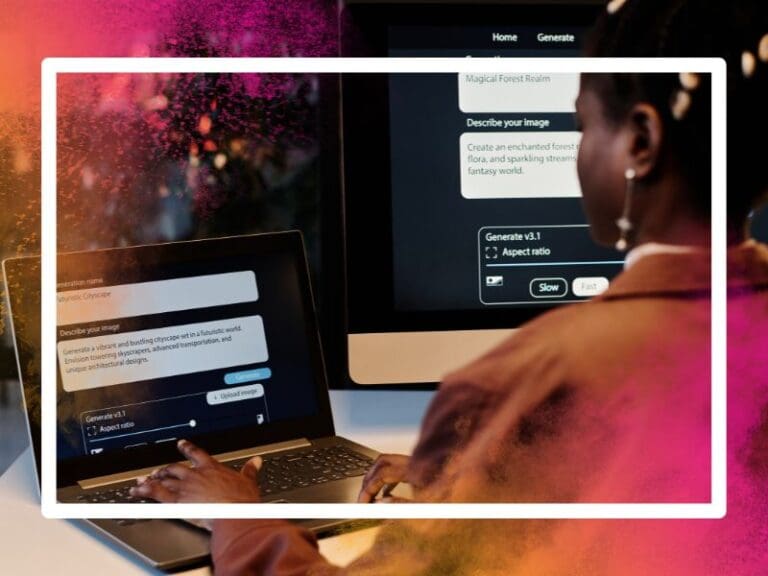TECH HAS HISTORICALLY PROVEN A LESS THAN WELCOME SPACE FOR FEMALE PROFESSIONALS.
Only 19% of UK and 17% of IT specialists are women, female programmers and engineers report high levels of harassment and discrimination, and half of all women in tech leave the industry completely by the age of 35. The pipeline of younger women and girls in IT is also chronically low – far fewer women complete computer science degrees than male peers, in part because female students are not encouraged into STEM subjects early enough at school – and a deficit in gender diversity at the top of big tech companies means fewer role models and fewer women able to bring others up the ladder with them. However, a positive change in the tech industry’s gender equality could arrive sooner than expected. Although much of emerging technologies are built on the same systems and in the same environment that has traditionally excluded women, the Metaverse could provide a whole new world of possibilities for women working in tech.

Aimee is the Marketing Director and D&I Lead at Templeton and Partners, a diverse tech recruitment agency supporting some of the world’s largest businesses. A Chartered Marketer, Aimee’s accolades include Marketing Week’s Rising Star of the Year and Account Professional of the Year at the Recruitment Marketing Awards.
THE ’EVOLUTION OF THE INTERNET’, THE METAVERSE CAN USE LESSONS FROM THE CREATION OF THE WORLD WIDE WEB TO MAKE THE NEXT VIRTUAL WORLD MORE INCLUSIVE FOR EVERYONE.
McKinsey predict that the metaverse economy could reach $5 trillion by 2030: businesses across retail, consumer and entertainment are clamouring to get involved as early as possible to dominate the space in the coming years. Diverse leadership teams have been consistently proven to drive far better financial returns than boards only featuring white men; the D&I focus championed by many other industries in the past decade has seen FTSE and Fortune 500 companies become increasingly representative of their diverse consumer groups and subsequently reap significant profits. The tech industry can harness D&I learnings from other industries to make the metaverse as diverse, and therefore as successful with all potential consumer groups, as possible.
The internet’s hostility to female users is well known: the names of popular global message boards are now synonymous with misogyny, gaming is rife with harassment of female players, and both negative content and direct abuse on social media exclude women and disproportionately affect their mental health. The internet wasn’t designed to exclude and harm women – virtual gender inequality is due to multiple failings, from decades of Silicon Valley and founder-esque ‘bro’ culture dominated by men, the resulting lack of interest and investment in hiring and retaining women into tech environments, and therefore a lack of dedicated care and proactive attention paid to making the web safer and better for female users.
Builders of the metaverse have the opportunity to fix this problem in the next generation of the online world by learning from the current state of the web. Tech founders and leadership teams can speak to their existing female employees to uncover explicit discrimination and implicit bias in the workforce, and improve their working environments to hire more women. Employers in the metaverse space can seek out the opinions and ideas of their female teams as to how to make virtual spaces more accessible and positive for women, whilst actively investing in nurturing the skills of their female programmers and developers to ensure they can incorporate their own knowledge and innovations, moving the metaverse forward.
Female tech professionals can also create a world of opportunities for female users of the metaverse. With more women pursuing hybrid and remote working roles to fit around caring responsibilities, women could harness more time and space for virtual work than their male colleagues, positioning women at the heart of online communities, reflecting best practices for women in hardware.
Female tech specialists who design and build the metaverse will create a positive, enjoyable and equitable world for female metaverse users at work and in all areas of life, generating more engagement in tech and benefits for all industries and communities globally.







